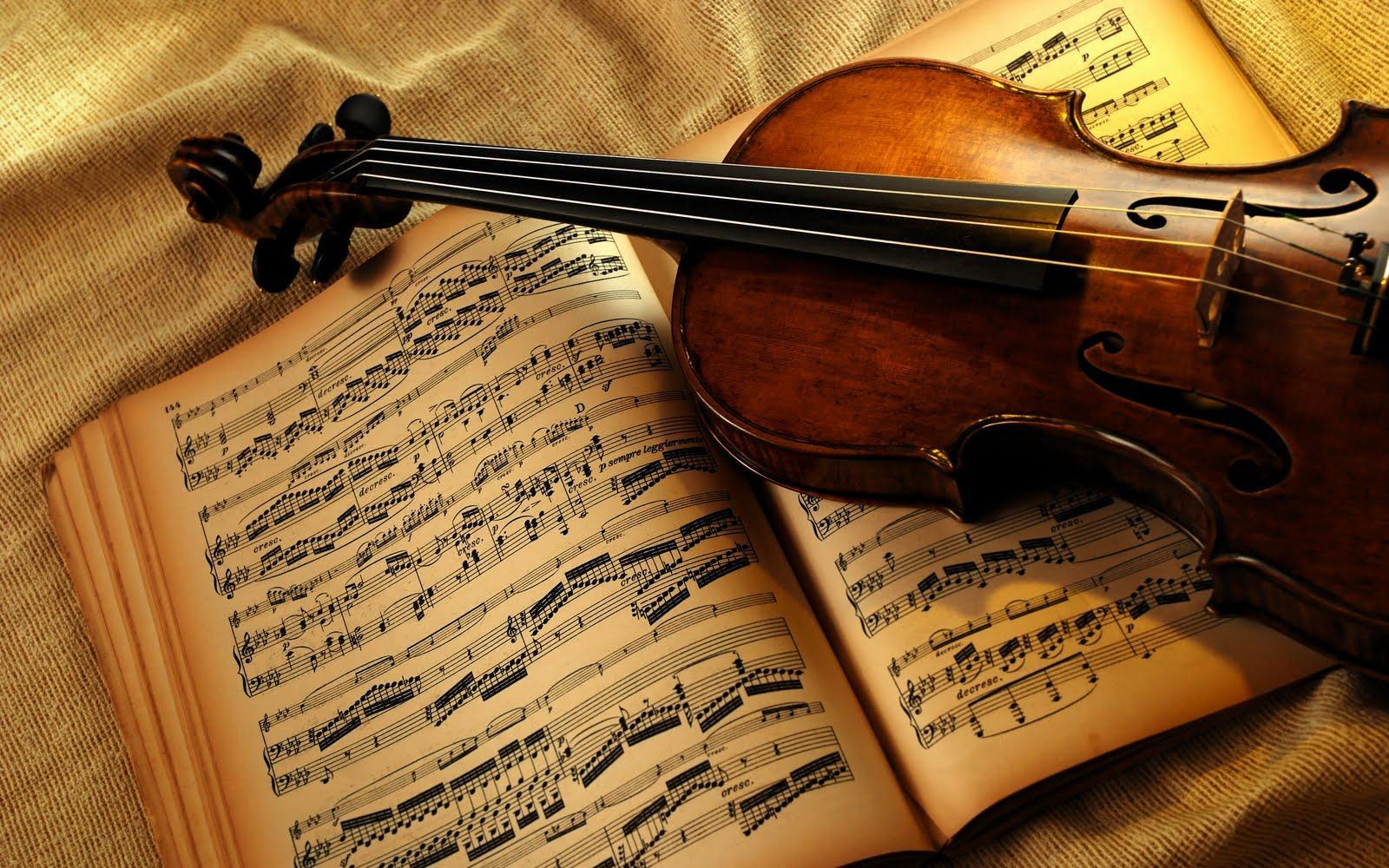Exploring the Influence of Classical Music on Modern Music
Classical music has had a profound influence on modern music. From the Baroque period to the Romantic era, classical music has provided a foundation for many of the musical styles and genres that are popular today.
The Baroque period, which lasted from 1600 to 1750, was a time of great innovation in music. Composers such as Johann Sebastian Bach and George Frideric Handel wrote complex and intricate pieces that featured multiple voices and instruments. This style of composition was a major influence on the development of jazz, rock, and pop music.
The Classical period, which lasted from 1750 to 1820, was a time of great refinement in music. Composers such as Wolfgang Amadeus Mozart and Ludwig van Beethoven wrote pieces that featured a more balanced and structured approach to composition. This style of composition was a major influence on the development of classical music, as well as on the development of musical theater.
The Romantic period, which lasted from 1820 to 1900, was a time of great emotion in music. Composers such as Franz Schubert and Johannes Brahms wrote pieces that featured lush harmonies and passionate melodies. This style of composition was a major influence on the development of film music, as well as on the development of popular music.
The influence of classical music on modern music is undeniable. From the Baroque period to the Romantic era, classical music has provided a foundation for many of the musical styles and genres that are popular today. By studying the works of these great composers, we can gain a better understanding of the evolution of music and its impact on our culture.
Examining the Role of Classical Music in Education
Classical music has long been a part of education, and its role in the classroom is an important one. From its use in early childhood education to its presence in college-level courses, classical music has been used to help students learn, focus, and develop their creative skills.
In early childhood education, classical music is often used to help children learn and focus. Studies have shown that classical music can help children concentrate and improve their memory. It can also help to reduce stress and anxiety, making it easier for children to learn. Additionally, classical music can help to stimulate creativity in young children, allowing them to explore their imaginations and express themselves in new ways.
At the college level, classical music is often used to help students focus and relax. It can be used to create a calming atmosphere in the classroom, allowing students to concentrate on their studies. Additionally, classical music can help to stimulate creativity and critical thinking skills. By listening to classical music, students can gain a better understanding of the structure and form of the music, which can help them to better understand the structure and form of other works of art.
Finally, classical music can be used to help students develop their appreciation for the arts. By listening to classical music, students can gain a better understanding of the history and culture of the music, as well as its influence on other forms of art. This can help to foster a greater appreciation for the arts, which can lead to a more well-rounded education.
In conclusion, classical music has a long history of being used in education. From its use in early childhood education to its presence in college-level courses, classical music can help students learn, focus, and develop their creative skills. Additionally, it can help to foster a greater appreciation for the arts, which can lead to a more well-rounded education.
The Evolution of Classical Music Through the Ages
Classical music has been around for centuries, and its evolution has been shaped by the changing times and the various cultures that have influenced it. From its beginnings in the Middle Ages to its current form, classical music has been a source of inspiration and entertainment for generations.
The earliest forms of classical music can be traced back to the Middle Ages, when it was used as a form of entertainment for the nobility. This period saw the emergence of the Gregorian chant, which was used in religious ceremonies. This style of music was characterized by its monophonic texture and its use of Latin texts.
The Renaissance period saw the emergence of polyphonic music, which was characterized by its use of multiple voices and instruments. This period also saw the emergence of the madrigal, a form of vocal music that was popular among the nobility.
The Baroque period saw the emergence of the concerto, a form of instrumental music that featured a solo instrument accompanied by an orchestra. This period also saw the emergence of the opera, which was a form of musical theatre that combined singing, acting, and dancing.
The Classical period saw the emergence of the symphony, a form of orchestral music that featured multiple movements. This period also saw the emergence of the sonata, a form of instrumental music that featured a solo instrument accompanied by a piano.
The Romantic period saw the emergence of the lieder, a form of vocal music that featured a solo voice accompanied by a piano. This period also saw the emergence of the concerto grosso, a form of orchestral music that featured multiple solo instruments accompanied by an orchestra.
The 20th century saw the emergence of modern classical music, which was characterized by its use of dissonance and atonality. This period also saw the emergence of the avant-garde, a form of experimental music that featured the use of unconventional instruments and techniques.
Throughout its history, classical music has been shaped by the changing times and the various cultures that have influenced it. From its beginnings in the Middle Ages to its current form, classical music has been a source of inspiration and entertainment for generations.
The Impact of Technology on Classical Music
Classical music has been around for centuries, and it has been a source of inspiration and entertainment for many generations. However, in recent years, technology has had a significant impact on the way classical music is composed, performed, and experienced.
The most obvious way technology has impacted classical music is through the use of digital instruments. Digital instruments are computer-based instruments that can be programmed to produce a wide range of sounds. This has allowed composers to create complex pieces of music that would have been impossible to create with traditional instruments. Additionally, digital instruments are often much more affordable than traditional instruments, making them accessible to a wider range of people.
Technology has also had an impact on the way classical music is performed. Many classical musicians now use digital audio workstations to record and mix their music. This allows them to create a more polished sound than they could with traditional instruments. Additionally, digital audio workstations allow musicians to easily edit and manipulate their recordings, allowing them to create unique and interesting sounds.
Finally, technology has had an impact on the way classical music is experienced. With the advent of streaming services, it is now easier than ever to access classical music from all over the world. Additionally, many streaming services offer interactive features, such as the ability to create playlists and share music with friends. This has made it easier for people to discover and enjoy classical music.
In conclusion, technology has had a significant impact on classical music. Digital instruments have allowed composers to create complex pieces of music, digital audio workstations have allowed musicians to create a more polished sound, and streaming services have made it easier for people to access and enjoy classical music. As technology continues to evolve, it is likely that its impact on classical music will only become more pronounced.
Celebrating the Great Composers of Classical Music
Classical music is a genre of music that has been around for centuries and has been enjoyed by many. It is a genre of music that is often associated with sophistication and elegance. Throughout the years, many great composers have emerged and have left their mark on the world of classical music.
One of the most influential composers of classical music was Wolfgang Amadeus Mozart. He was born in 1756 in Salzburg, Austria and was a child prodigy. He was a master of the keyboard and composed over 600 works, including symphonies, operas, concertos, and chamber music. His works are known for their beauty and complexity and are some of the most beloved pieces of classical music.
Another great composer of classical music was Ludwig van Beethoven. He was born in 1770 in Bonn, Germany and is considered one of the most influential composers of all time. He composed over 600 works, including symphonies, concertos, and chamber music. His works are known for their emotional intensity and are some of the most beloved pieces of classical music.
Johann Sebastian Bach is another great composer of classical music. He was born in 1685 in Eisenach, Germany and is considered one of the greatest composers of all time. He composed over 1,000 works, including cantatas, concertos, and chamber music. His works are known for their complexity and are some of the most beloved pieces of classical music.
Joseph Haydn is another great composer of classical music. He was born in 1732 in Rohrau, Austria and is considered one of the most influential composers of all time. He composed over 100 symphonies, operas, concertos, and chamber music. His works are known for their beauty and are some of the most beloved pieces of classical music.
These great composers of classical music have left an indelible mark on the world of music. Their works are timeless and will continue to be enjoyed for generations to come. They have truly made a lasting impact on the world of classical music and will be remembered for centuries to come.






